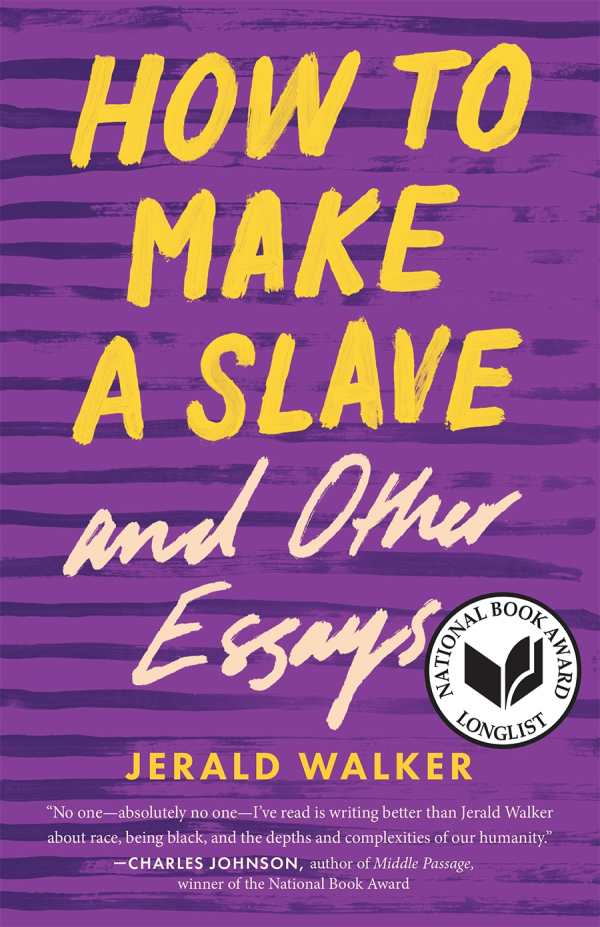How to Make a Slave and Other Essays
Jerald Walker’s essay collection concerns family, academia, and the uncomfortable realities of racism.
The provocative essay “How to Make a Slave” reminisces about a Black history school project on Frederick Douglass, during which the quote “You have seen how a man was made a slave; you shall see how a slave was made a man,” resonated with Walker, but was not yet understood. As a father, wrestling with when and how to explain the racial history of America to his school-aged children, the quote resurfaced, bringing new knowledge with it.
This act of reconciling the inherent humanity of Black people against the position they have been held in in American society is present in all of the essays of the collection; each deals with the effects of racism. Entries exist in dialogue with each other: Walker explores how his background—he grew up in Chicago projects—interacts with his family life and education to inform how he processes information and connects with society.
Some essays find the humor in awkward and uncomfortable situations. Walker attends a faculty reception and frustrates a white colleague’s husband because he doesn’t “hate all whites”. A haircut, the subject of “Kaleshion,” results in irony, deep embarrassment, and a connection to Walker’s loving yet controlling father. Other entries cover microaggressions, like having a white colleague complain about feeling threatened during a passionate debate and “lost” dinner reservations. Institutionalized racism is also a concern: in “Breathe,” a doctor says that Walker’s Black twelve-year-old son’s seizures are likely caused by syphilis, despite not having run tests that indicate the presence of the disease.
The personal essays of How to Make a Slave and Other Essays consider what was gained and lost when Walker, a Black father and academic, sought to join America’s middle class.
Reviewed by
Dontaná McPherson-Joseph
Disclosure: This article is not an endorsement, but a review. The publisher of this book provided free copies of the book to have their book reviewed by a professional reviewer. No fee was paid by the publisher for this review. Foreword Reviews only recommends books that we love. Foreword Magazine, Inc. is disclosing this in accordance with the Federal Trade Commission’s 16 CFR, Part 255.

